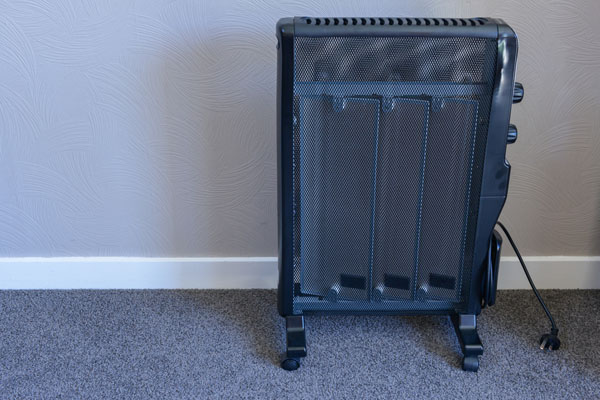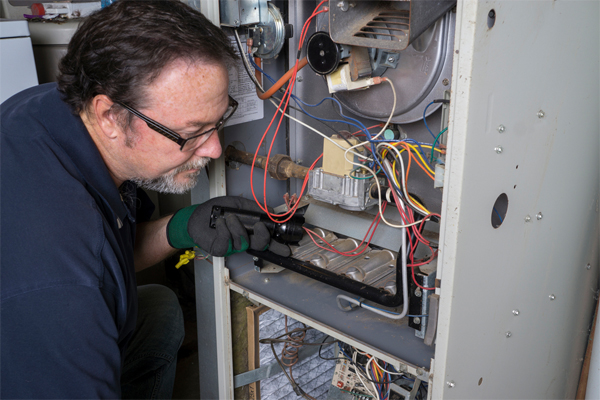
Imagine if you will: It’s the middle of winter, the ground buried in several inches of snow. You are indoors, and you notice that your house is starting to feel cold. Your heating system doesn’t seem to be working. What do you do? Unfortunately, a home heating emergency is a reality that many homeowners experience. A heating system usually breaks down in the middle of a cold snap when you rely on it the most. An emergency no-heat situation can lead to problems that could impact your comfort and safety. If this situation happens to you, you will need to know how to stay safe and warm until the HVAC contractor arrives. This article discusses the best ways to stay warm and safe during a home heating emergency.
What Is A Home Heating Emergency?
A home heating emergency is a situation wherein the home heating system, such as a furnace or boiler, becomes inoperative during a time when it is needed. In some cases, the problem is simple and can be resolved readily without professional help. For example, since most heating systems use electricity, check the power source and the circuit breaker. Also, it is also a good idea to check the fuel supply. If you have run out of fuel, immediately schedule a delivery. The sooner you identify the problem, the sooner you will solve the problem.
A home heating emergency can cause serious inconvenience to your household. It also presents several safety issues. Without heat, you will have to deal with:
- Discomfort: HVAC emergencies always lead to discomfort. Low to very low temperatures can make living indoors difficult. When you have no source of heat, your risk of developing respiratory problems increases, and you could become vulnerable to colds and flu. It is also difficult to sleep or take a nap in cold conditions.
- Health Risks: Very low temperatures can increase the risk of hypothermia. Low body temperatures can affect one’s ability to move and think. At very low temperatures, people are also susceptible to frostbite and respiratory problems. Low temperatures are also a problem for people suffering from heart disease and arthritis. Young children, infants, and the elderly are especially sensitive to colder temperatures.
- Frozen Pipes: Without heat, water in the pipes can freeze, making it impossible for water to flow. Frozen water trapped in the pipes can also expand and cause the pipes to burst and become damaged.
How To Stay Warm While Waiting For Your HVAC Contractor

So let’s say you have checked what needs to be checked and the problem persists. You will have to call for emergency heating system checkup and repair to get your furnace working again. In the meantime, you need to be able to keep warm until your HVAC contractor arrives and completes the repair job. Here are things you can do while waiting:
Turn Off Your Heating System
Your heating system is still inoperative, so turn off the thermostat and the power. If you have a gas furnace, turn off the supply lines as well. This will help isolate your heating system and keep you safe indoors.
Use A Space Heater
Space heaters are portable heaters that heat up ambient air. They usually come equipped with a small fan that blows warm air. A small space heater with a 2 to 3 kW capacity is effective enough to keep a small room warm. Larger heaters with up to 30 kW capacity can heat medium-sized and large buildings. If you plan on using a space heater, be sure to use it safely. Never leave it unattended. Follow the manufacturer’s guidelines.
Also, make sure everyone in the house stays in one room. Close the doors to rooms that are not in use. Isolate the heat to the room that your household plans on staying in.
Consume Warm Drinks
Warm drinks not only keep your hands and face warm, but they also provide a gentle comfort when you need it most. However, choose drinks that are known to actually keep you warm, such as coffee and herbal tea. Coffee has caffeine, which stimulates metabolism, triggering the body to heat up to burn fuel. Ginger tea, on the other hand, improves circulation and keeps your blood flowing to your extremities. Keep away from alcohol. You can also warm up a bowl of soup.

Exercise
Moving helps increase your heart rate, allowing your blood to flow and circulate. Simple exercises keep you limber, and blood flow to your extremities helps fight away the cold.
Bundle Up & Add Layers
Wear layers of clothing to preserve body heat. Jackets, coats, gloves, socks, and shawls can be worn to keep yourself warm. Keep an eye on very young children and the elderly to ensure that they are warm yet comfortable. Avoid constricting any part of the body with clothing that is too tight or too heavy.
How To Prevent Heating Emergencies
The best way to prevent heating emergencies and avoid the problems associated with them is to be prepared. It always pays to be one step ahead when it comes to potential issues. Here are a few things you can do:

Get Annual Heating System Maintenance
A good way to prevent a furnace malfunction is to schedule an annual checkup and maintenance for your heating system . Regular checkups help identify potential problems early so they can be fixed immediately.
Call A Professional HVAC Contractor
At the first sign of trouble, call a heating and air conditioning professional right away. It is probably more practical to try to troubleshoot the issue initially, but more serious problems should be dealt with by a trained and licensed technician. Regardless, if you think that your heating system is not performing normally, then address it right away.
Replace HVAC Air Filters
Furnace service companies frequently remind homeowners to keep their air filters clean or have them replaced regularly. Clogged filters impede the proper flow and distribution of air. They also cause the heating system to work harder, consume more fuel or energy, and become inefficient. Furthermore, an obstructed filter can lead to issues with the heating system, escalating unnecessary repairs. Check it monthly and replace as necessary.
Conclusion
Preventing furnace malfunctions is actually a more practical way to ensure that your home remains safe and comfortable during the winter months. With a few simple steps and some practical solutions, having a heating emergency does not have to be a serious issue for you and your family. Make sure to work with a trusted HVAC company to keep your heating system in top shape and working when you need it most.
Call Point Bay Fuel For Your Home Heating Needs

Need a heating system repair or replacement? No worries. You are in good hands with Point Bay Fuel. We guarantee the most competitive furnace repair and replacement costs in the area. If you happen to need a replacement system, we can recommend the best one for your home while staying within your budget. As always, we prioritize energy efficiency, comfort, indoor air quality, and more. We also offer fast and affordable emergency, no-heat services for those unexpected moments. To schedule an appointment, give Point Bay Fuel a call today for a free, in-home estimate.
Contact us now by calling (732) 349-5059 to speak to one of our home comfort specialists!
The post Essential Tips For Surviving A Home Heating Emergency appeared first on Point Bay Fuel.
No comments:
Post a Comment